Injunction Junction: What’s your Function

Alternative Title: O’Bannon… You Came And You Sued For Injunction…
Alternative Alternative Title: Selling Little Bottles of OLB #9
The O’Bannon antitrust trial started this week, and because trials are fun and listening to the NCAA’s lawyers is amusing as hell, let’s talk about it. To properly understand this, we have to go back to the year 1890 and the passage of the Sherman Antitrust Act…
Sweet tapdancing hell we are NOT doing this again. We’re not going back to freeking nineteenth century.
Oh come on, this stuff is interesting.
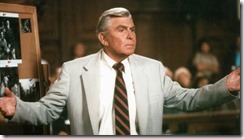 |
| Plaintiff's attorney |
I just died of boredom.
Fine. But we at least have to go back to the year 1995. Ed O’Bannon is the best player in college basketball; he averages 20.4 points and 8.3 boards and wins the Wooden award, and his UCLA Bruins win the national title. So that was cool. Then, a decade later, a younger relative showed O’Bannon a copy of EA Sports’ NCAA 2007, which contained some classic teams, including the 1994-95 UCLA Bruins. O’Bannon noticed that (a) he was in that game, and (b) he hadn’t been paid anything for his appearance in the game. This, he deduced, was crap.
But he waived his rights to get paid for that, right?
Indeed. All athletes, before they play a single second, have to sign a waiver that relinquishes any rights they have in their likeness. The NCAA can use any player’s image for whatever the NCAA sees fit, and owes the athlete nothing. In fact, as you may know, if players DO get paid for their likenesses during their playing careers, they get suspended for an entire season. No, wait, that’s pot. You get suspended for one half of one game. But still, athletes can’t get paid.
There is, however, a way to get around that waiver. If the NCAA violated the law in forcing O’Bannon and other athletes to waive those rights, the waiver are invalid. If only such a law was passed during the Harrison Administration (NNTHA) that Bolded Disembodied Alter-Ego would let me discuss…
Sigh. Fine, just make it quick.
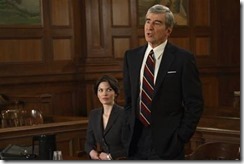 |
| Other plaintiff's attorney |
WOO. The Sherman Antitrust Act makes certain anticompetitive behaviors by entities that have dominant positions in a given market illegal. It’s not against the law to create a monopoly, but if you have one, you can’t use it to restrain trade or hurt consumers. If you’re Microsoft, you can install Windows on 80% of all computers, and that’s not a problem. If you use that 80% market share to bundle everything with Internet Explorer so people won’t use Netscape Navigator, that IS a problem.
Yes, the problems of the 1990s were bizarre in hindsight.
And what exactly are the plaintiffs whining about?
When athletes start playing, they have to sign a waiver that surrenders all of their name, image, and likeness (“NIL”) rights to the NCAA. The NCAA can then use those rights however they see fit without compensating the athletes in any way. Two ways they use athletes’ NIL rights are in licensing for video games and licensing for live television broadcasts of games, promos, etc.
For video games, it’s a pretty easy case to make. The NCAA used to grant EA Sports the right to develop and sell video games with all of the FBS teams and players, and in exchange EA Sports would add a little depth to the Scrooge McDuck coin vault swimming pool. The NCAA has tried, half-heartedly, to argue that it is a coincidence that the rosters of every college team have every player with the appropriate height, weight, position, number, skin color, athletic characteristics, and general appearance. This issue bleeds over into other not-about-Player-X-but-definitely-about-Player-X stuff like jersey sales; sure, Michigan wasn’t selling Denard jerseys. But they were selling Denard jerseys.
The other issue is television rights. Right now, conferences sign television deals with networks, networks televise games, networks pay conferences large sums of money, conferences distribute that money among the member schools, and member schools give players… uh… the satisfaction of a job well done. O’Bannon is arguing that part of the value of those broadcasts are the result of the NIL rights that the players have to sign over to the NCAA.
[AFTER THE JUMP: More of what we're talking about here]
Whoa whoa whoa… do networks actually have to have athletes’ permission to broadcast them?
 |
| He thinks he's entitled. |
I have no idea, and neither does anyone else. It’s still an open question, and one of the biggest open questions of the whole trial. Are the networks broadcasting the teams or the players? Or both? Athletes don’t generally give explicit permission to broadcast them playing, but, in pro sports those rights are presumably part of collective bargaining agreements with the respective professional league. The fine print on the back of most tickets clarifies that the spectator is granting the use of their NIL rights in broadcasts, but the band doesn’t. It’s an interesting question, and will be a hot topic in the trial.
FWIW, the NCAA has argued that they don’t sell the rights to the broadcast; they simply sell the right to access the premises. Seriously. They argue that ESPN pays the SEC a gajillion dollars for the right to put cameras in the building. The ‘broadcasting football and running ads’ thing is just a nice little bonus.
So, how much is O’Bannon looking to get paid?
O’Bannon isn’t looking for money, at least not directly. Instead, he’s looking for an injunction, which is the legal version of a rolled-up newspaper to the nose of a disobedient dog demanding that they stop certain behavior. There was a related suit that was asking for damages filed by former Nebraska quarterback Sam Keller, which was temporarily combined with the O’Bannon suit. But the judge in the case (Claudia Wilken, U.S. District Court for Northern California) separated the two cases for the trial phase.
O’Bannon originally filed his action against EA Sports and the Collegiate Licensing Company* as well as the NCAA. But EA Sports and the CLC settled with the plaintiffs for $40M to settle Keller’s claims, and agreed to stop producing NCAA Football and Basketball games to satisfy O’Bannon’s demands. Then, on Monday, literally moments before the O’Bannon trial, the NCAA then settled the Keller suit for $20M. So the only remaining part of the suit is the injunction against the NCAA.
*The CLC is a trademark licensing and marketing company that operates as the licensing arm of the NCAA, many conferences, and most major schools including Michigan. Look at the tag on any piece of ‘officially licensed’ college stuff you have. See that little red, white and blue circular logo? That’s them.
Wait, why did they settle the Keller suit, but not this?
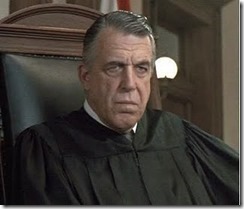 |
| Judge Claudia Wilken |
Best guess: the NCAA has lots of money. They can throw money at problems to make them go away. But settling a suit for injunctive relief usually means you have to DO something. They’d have to change the status quo on licensing, which they might see as unleashing a change they can’t control or survive.
And this whole thing is about video games and broadcast rights?
Yes and no. Those are the complaints, but the broader issue is that the judge is looking at whether the NCAA is acting in violation of antitrust laws with its current system of restrictions. If it is, she can craft an injunction that addresses the extent of the violation. That remedy might be “hey, no more video games without athlete permission” or “no more NIL waivers” or “you have to give the players a cut of the TV money” or “athletes can’t be prevented from profiting from their own likenesses” or “the amateurism rules no longer apply” or “the entire NCAA rulebook is now gone.” And even if the injunction is more limited (which would be my guess), it would open the door to similar future claims. For the NCAA, winter is coming.
Yeah, yeah, Game of Thrones is awesome blah blah. Who has to prove what?
O’Bannon’s lawyers have to show that the NCAA engaged in an agreement, contract or conspiracy to manipulate prices, the agreement unreasonably restrained trade, and that the restraint affected interstate commerce. Don’t worry about the last point; it’s just a thing that allows the feds to get into it. No one will contest that part. The first point is probably a given, too; one of the NCAA’s primary purposes is to make sure all schools provide the same level of benefit (which is below what some might receive in the open market). The phrase "impermissible benefit" exists for a reason, after all.
The big issue, then, is whether the NCAA unreasonably restrains trade. The plaintiff has to show that the NCAA uses its monopolistic control to harm/manipulate/damage some discernable market. And they can get away with pretty much anything if they have a good enough reason.
The plaintiffs are arguing that the way the NCAA handles its business harms two markets: the college education market and the group licensing market. In other words, if the NCAA wasn’t such a buzzkill, the market for college athletes would be different and more beneficial to the athletes, and there would be a value for athletes to use their NIL rights that they are currently prevented from receiving.
The college market argument is a pretty easy one. If the NCAA allowed it, would players be paid more than they currently are? Well, yeah. Because some players (looking at you, Ole Miss and Clemson) are already getting paid more than the NCAA allows. The NIL argument isn’t much harder, because they already have the head of EA sports saying they would have been willing to pay more to be able to use actual names in the games rather than QB #16.
So, victory?
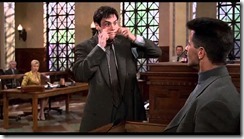 |
| NCAA attorney in action |
Not yet. The NCAA can argue that without those restrictions, the nature of college sports would be so different that the rules are reasonable. The NCAA has several arguments that, sure they’re restricting the market, but it’s FOR the market. Their arguments are as follows:
- Amateurism is good. Specifically, the game wouldn’t be the same if the players weren’t amateurs. No one would care. They would be all, “eh, these guys get paid,” and turn to… uh… whatever else is on TV on fall Saturdays. This argument is a really hard sell, because (a) players ALREADY get paid (how many times have you heard an anti-player-pay guy scream “THEY ALREADY GET FREE TUITION THAT’S LIKE A BILLION DOLLARS AND I HAD TO SELL MY UNCLE'S NEPHEW TO PAY FOR COLLEGE”), and (b) the NCAA is already talking openly about an additional stipend on top of the normal scholarship amount. Besides, as the plaintiffs pointed out, there are less restrictive means of ensuring that the players are “amateurs” during their playing career, like establishing a fund that pays players after they leave school.
- Limits are necessary for competitive balance. If everyone gets paid for their likenesses based on unfettered market forces, people are going to get a bunch more money at Alabama than they are at Eastern Michigan, and they’ll make more at Eastern Michigan than they’ll make at Northwest Bumblemuffin State. This will necessarily cause all of the most talented athletes to go to the biggest name schools and conferences. Which is totally not what happens now. All schools recruit the same athletes with the same level of success. (In a related argument, the NCAA will argue that some schools will be forced to leave Division 1 because they can’t afford to keep up with the Sabans.)
- We ain’t come to play SCHOOL. The NCAA is arguing that without the amateurness of college sports, the connection between the student and the athlete in “student-athlete” would be lost. Judge Wilkin has said that for this article to succeed, the NCAA must show that it “actually contributes to the integration of education and athletics.” I can’t honestly think of a single good argument for this one. I can’t even pretend to defend it before shredding it. Sorry.
Okay, then how’s the trial going so far
Ed O’Bannon’s testimony highlighted day one, though his testimony will probably be the least consequential. O’Bannon testified about the time balance between being a student and an athlete, about being encouraged to take easier classes and less challenging majors, and the about signing the waiver of naming rights. The NCAA spent a lot of time trying to get O’Bannon to talk about all the benefits he got from playing, and how John Wooden was a great mentor. Which is nice… and totally irrelevant to the actual issues of the case. Easily the best moment in O’Bannon’s testimony, though, was when the NCAA’s attorney trying to get on the record that Bill Walton doesn’t think players should be paid. Because, as you can imagine, having Bill Walton on your side is checkmate in ANY TRIAL.
The more important testimony was that of Stanford economics professor Roger Noll, whose testimony lasted for a total of 11 hours over three days. Noll (presumably in a Ben Stein-esque rhythm and cadence) explained the basic microeconomic theory behind the plaintiff’s case; that without the restraints put in place by the NCAA, players would receive more money, both in terms of compensation from schools and in licensing of their names, images, and likenesses. He also explained how the NCAA is a cartel, in that the various member organizations formed a joint association that sets a series of rules for how they operate in the market.*
Noll also testified about the ancillary effects of the NCAA’s restrictions. He argued that the money that would otherwise go to athletes is being used on things like coaches salaries and construction projects. These “inefficient replacements,” according to Noll, demonstrate the excess money that are being used as replacement enticements and signals of a strong program for recruits.
Tyrone Prothro, he of the AAAARRRRGGGG DON’T SHOW THAT REPLAY, testified on day three. He shared the story of how his miraculous catch helped win Alabama a $100,000 prize, and the NCAA used it in ad campaign and several other ways, but when Prothro wanted a copy of the picture the school told him he would have to pay for it. He also testified about the lack of integration of the athletes with the normal students, and how the NCAA has told him they won’t pay for future surgeries on his astoundingly shattered leg.
Day four was a battle of the television execs. Former NBA TV executive Ed Desser testified for the plaintiff that television deals assume that the teams/conferences/whatever are transferring the rights to broadcast the players; that the NIL rights are “at the heart of what's being conveyed" by the conferences. NCAA witness (and former CBS President) Neal Pilson, testified that networks broadcast teams, not players. He also pointed out that many agreements don’t explicitly mention participant NIL rights. He also wandered into the “people wouldn’t watch players if they were paid” territory, which was odd and somewhat outside his wheelhouse.
*One fun tidbit is that the NCAA’s economic expert also referred to the NCAA as a cartel. In a textbook he wrote. The best expert the NCAA could find for their cause literally called the NCAA a textbook example of a cartel.
This trial will drag on for a while, and when it does come to a conclusion, the appeals may go on for years. In the meantime, the NCAA will continue business as usual.
Agree on the awesome write up. And agree that there will be appeals. If the judge, however, grants an injunction, that may kick in while the appeals are pending. (Por ejemplo, If I get an injunction to stop you from wrongly tearing down my house, that injunction is likely to stand while you appeal the ruling.)
So, if the injunction is granted, the NCAA may not be able to continue business as usual as the case works its way up the ladder. It depends on whether an appeals court feels that it needs to undo the injunction pending a final determination. If the Appeals Court feels that the plaintiff is likely to win, and the injunction is protecting some interest, the injunction could well stick and the NCAA would need to shift to comply with the injunction (whatever that might look like) until a final decision is rendered.
Also, I have no doubt that Barry Manilow reads the blog and appreciates the shout out.
Great write up BiSB. If you could add to it, how does the NRLB ruling play into this? Aren't college moneymaking student-athletes pseudo employees now? At least at Northwestern? Pending appeal? Does that translate into any of this at all?
I know the NCAA's semantics don't matter at all to this judge, but if the players are employees then what's stopping this suit from bringing up the artificial cap on employee pay by the cartel?
The NLRB ruling (assuming it stands throughout the appeals process) would not play a role here in my view. The NLRB ruling merely allows scholarship football players at Northwestern University to unionize; and since the players casted annonymous ballots (the results of which likely will not be known until this appeals process ends), we do not actually know whether any bargaining will take place. The most likely extension of the NLRB ruling would be to allow scholarship football players to unionze at other private institutions, since the National Labor Relations Act (the federal statute allowing employees to unionize) applies almost exclusively to private employers. The NLRB ruling does not allow basketball players (or any other college athletes) to unionize. However, in my view, this NLRB ruling did lay the groundwork for college basketball players (and perhaps other college athletes) to unionize, as well - again, only at private institutions.
Now, the most obvious reason the NLRB ruling would not play a direct role here would be the fact that the universities, rather than the NCAA, would be deemed the athletes' employer - that is, the universities, rather than the NCAA, controls the day-to-day activities of its college athletes. Put another way, the NLRB ruling paves the way for players to bargain over the terms and conditions of their employment with their employer only - that is, with the university, not with the NCAA. Of course, I would suspect that contracts relating to rights of publicity - that is, the issue in the O'Bannon trial - would be a subject of bargaining between any athlete unions and the universities, subject to whatever revenue streams exist. But, in terms of your question regarding pay practices, it would be the Universities, rather than the NCAA, which would be on the hook to abide by State and Federal wage and hour laws.
Anyone can chime in if I've analyzed this incorrectly, or if there is something I missed.
An injunction will help shatter the delusion that college football still looks like the picture below. The NCAA doesn't live in reality. A lot of people get rich off of this. Why must they be made to live in reality, damn it?!
Second thought: Excellent job, BiSB. This sort of thing is what makes this blog better than anything else sports-related on the net.

An explanation I can understand!
By the way, the Northwest Bumblemuffin State Crumbcakes are awesome! Look for them to win it all this year!
Win all of what?
FWIW, the NCAA has argued that they don’t sell the rights to the broadcast; they simply sell the right to access the premises. Seriously. They argue that ESPN pays the SEC a gajillion dollars for the right to put cameras in the building. The ‘broadcasting football and running ads’ thing is just a nice little bonus.
If you understand copyright law, this is not an absurd argument -- in fact, it is 100% correct.
The NCAA cannot sell the "rights" to a football game, because no one possesses "rights" to a football game. There is no copyright interest in the football game itself -- the game is not scripted in any way, it is not fixed in a tangible medium before the players go out and play, etc. The copyright exists only once the game is filmed, and the copyright subsides in whoever did the filming. So if the NCAA wants to give ABC, for example, the copyright interest in a football game, the only thing they can do is give ABC sole authority to film the game in the stadium.
As for whether the athletes have a right of publicity in connection with the use of their image in an in-game performance, it's really doubtful. Courts have previously held that the copyright in the telecasts of major league baseball games preempts the Players' rights of publicity in their game-time performances. http://openjurist.org/805/f2d/663/baltimore-orioles-inc-v-major-league-…
Also, the right of publicity is sharply circumscribed by the First Amendment, so it only can be used to prohibit commercial uses of a person's image -- ie, in advertising or on a product -- and not "expressive" uses (eg, use in a film or on a television show). The filming of a public sporting event for broadcast is an expressive work. Once a player voluntarily agrees to perform at a sporting event, in public, he loses the right to complain or demand payment for the display of that public performance.
...isn't a football game being broadcast for the sake of selling advertising space?
Yes, but this is a resolved issue. Courts have recognized that every expressive work is "commercial" to the extent that it is being sold. But the law recognizes a difference between creative (or newsworthy) works like films, television shows, books, etc -- even though the purpose of such works are to make a profit -- and "purely" commercial works such as advertisements and products (ie, Denard's face on a t-shirt). Films and television broadcasts get a lot more First Amendment protection even though, like everything in our capitalist utopia, they are sold for a profit.
Thanks for the explanation.
No problem, it's nice when the weird stuff I deal with at work is actually a subject of interest.
To be clear, no court has ever expressly addressed the question of whether the First Amendment trumps a player's right of publicity for purposes of the broadcast of a game -- I'm giving my prediction of how that will turn out based on analogous cases, but I feel pretty confident in it.
The only case to actually involve athletes claiming that they had a right of publicity interest in broadcasts of a game was decided back in 1986. In that case, a federal appellate court held that a ballclub's copyright interest in the telecasts preempted the players' right of publicity--it didn't get into the First Amendment issue. I think that the decision in that case will be a problem for O'Bannon as well, though as BiSB notes in his post, there are some factual differences (most notably the explicit employment relationship between pro athletes and the ball clubs).
I'm personally skeptical of their argument, but it almost seems like a first impression kind of thing given the distinct nature of the claims.
Once a player voluntarily agrees to perform at a sporting event, in public, he loses the right to complain or demand payment for the display of that public performance.
Isn't this where the whole digression into the Sherman Antitrust Act comes in? While the players are "voluntarily" signing their rights away, they are doing it because the NCAA is anticompetitively taking away their other options.
The antitrust argument comes into play with regard to the contract they are forced to sign, which gives the NCAA the right to use their images even on products -- a use that is not protected by the First Amendment.
The First Amendment issue is a broader one -- is you appear in public and participate in what you know to be a newsworthy event, you don't get to complain when someone puts that newsworthy event on TV, much less demand compensation after the fact. This rule applies to everyone, not just NCAA athletes.
If you want to say that NCAA athletes should be able to refuse to participate in those events in the first place without getting paid by the NCAA for their performance, that is certainly a different issue. But that doesn't mean that, once having chosen to participate, they can retroactively demand payment from everyone who broadcast the game.
The First Amendment issue is a broader one -- is you appear in public and participate in what you know to be a newsworthy event, you don't get to complain when someone puts that newsworthy event on TV, much less demand compensation after the fact. This rule applies to everyone, not just NCAA athletes.
But this isn't a public event, it's a private event with television companies are paying millions of dollars for access in order to film and broadcast it. Until competing companies can show up and film for free I don't really think this applies here.
Apples and oranges. If I control a facility that seats 100,000 people, I can refuse to admit you unless you agree not to film what goes on and sell said film. That doesn't mean that if I appear before 100,000 people I am not appearing in "public."
I still don't see how this argument relates when the access is controlled. I see how the first amendment issues apply if I film a player walking down a public street, but that doesn't seem to relate if I can't get access to film the player playing a game without paying the schools first. The TV stations wouldn't be paying the schools millions of dollars for access if the players weren't playing a game, and the players think they are being anticompetitively restricted from a larger share of those milliions.
You have to bear in mind that courts have already ruled that even professional baseball players don't have a "right of publicity" in connection with their in-game performances. This obviously doesn't mean that pro athletes don't get paid -- they get paid because they can refuse to perform at all unless they get a paycheck. That is what should really be at the heart of the issue here.
Saying that college athletes, like pro athletes, don't get to sue TV stations for broadcasting an event that took place before tens of thousands of people doesn't mean they shouldn't be paid at all. It doesn't mean that they shouldn't be able to collectively bargain with the NCAA for salaries, etc.
You're right that the way I phrased it wasn't great. It was among the last bits I added, and I wanted to go to bed, so I didn't flesh it out.
The NCAA's theory is that the existence of the players is basically irrelevant. Their TV expert testified yesterday that they aren't purchasing the rights to record and disseminate the event because of the players involved. The NIL rights themselves have, in his words, "no value." Their argument is that they DON'T acquire the NIL rights of the players, but instead the obtain ONLY the exclusive right to place cameras. This is in direct conflict with the language of the TV contracts that were introduced yesterday; the Fox/Big 12 contract explicitly guarantees the granting of the NIL rights of all participants, and others contain an indemnity for NIL claims against the broadcaster.
Whether athletes HAVE those rights is a separate (and very tricky) argument, and when tied into the anti-trust nature of the "voluntary participation" angle, it becomes a very sticky wicket.
Fair point. Certainly the reason that access to the stadium is valuable is because a game is going on there,
I have never seen so many irrelevant, non-legal based arguments in a legitimate court case. I almost feel sorry for the NCAA lawyers. They aren't dumb. They know they're doomed. Their choice to get rich making asses of themselves, though.
“people wouldn’t watch players if they were paid”
Because the nation's most popular sporting event is played by a bunch of amateurs...
To be fair, the argument is that the amateur status of NCAA football is why people watch it even though the talent level is undeniably inferior to the NFL. Supposedly, if you strip away the amateur status, NCAA football becomes more like minor league baseball/basketball/hockey, and nobody pays to watch minor league baseball/basketball/hockey, etc.
I don't necessarily buy that argument, but I do agree that there are a lot of variables that feed into why NCAA football is great. If athletes get paid, there needs to be a lot of thought put into how that will happen, otherwise they may strip away some of the appeal of the game. E.g., individual NFL players are commonly perceived as loyal to $$$ and their contracts, whereas individual NCAA players are more commonly perceived as having more loyalty to their teammates and school, since there is no conflict of interest between individuals and their teams, like how Flacco screwed over the Ravens with his huge $$$ contract. I do, however, think it could work if all NCAA players got paid the same amount at every position, regardless of starter-backup-benchwarmer status and regardless of which school you go to.
Since the NCAA isn't selling broadcast rights (only access to the building), then I guess they won't mind when my friends and I shoot the game on our phones (multiple angles, replay from about every seat in the house) and put them out there for people to see.
"....and in exchange EA Sports would add a little depth to the Scrooge McDuck coin vault swimming pool."
"Eureka! Ed O'Bannon's left incisor!"

This Pops into my head:

in 'student-athlete' would be lost".
There was a time when there may have been such a connection. But that time has long passed. Similarly, the connection between students and their athlete-classmates has largely passed. Who thinks Michigan or any other major college program stages football games for anyone other than alums--or more cynically those who can contribute money? Student tickets are perceived as simply as necessary evil.
"I HAD TO SELL MY UNCLE'S NEPHEW TO PAY FOR COLLEGE"
Does that mean you sold yourself? Or your brother?
Your uncle can have other siblings besides your parent.
- MGoLogicianPedant
are surely broadcasting the teams when I hear an announcer say something to the effect of: "Tune in for next week's Game of the Week, featuring #1 Florida International and star QB Farts McPooppants take on #4 Western Kentucky and their star RB Ike Amin-Yormom"
* I made sure not to list real players so I don't get sued.
I never understand how people believe your argument. Maybe I'm just different, but I'm not buying my season tickets or watching on television to see individual players. I'm watching the team I love. Obviously, part of that includes the individual players on the field; however, I truly believe I'm more invested in the team than in individual players.
I loved watching Woodson play, but I didn't stop being a Michigan fan when he entered the NFL draft. The same can be said for every star player that has played at Michigan since I started watching in the late 80's.
I can see BISB is obviously in favor of the plaintiff. But, at the end of the day, what changes? Someone bottom line this for me. Does college athletics potentially go away or do they just no longer remain student athletes and turn into staff members of the universities? Or, is there a chance that simply giving the athletes a union to bargain from and increasing compensation to lets say, full cost of attendance, 4-year scholarships, and fiddling with the NLI satisfies everyone? Because although I see the point of the athletes, I'm a traditionalist and don't want to see amateur college athletics dissapppear even if it's hard to control. Or maybe my brain is just too small idk.
To an extent I'm in favor of the plaintiff, but more to the point, I think they "win" this case to some extent.
The remedy is probably a loosening of the NCAA's rules regarding licensing, because that's the main issue in the case. If I had to guess,it'll result in players being able to be paid for their own likeness, and/or preventing the NCAA from requiring everyone to sign over their rights to the NCAA as a matter of course.
That doesn't bother me too much, unless we begin to see millionaire college athletes. That could become problematice to control. When young people have money bad things happen if they don't have really good support systems, which many of these athletes don't beyond the universities...and that isn't enough if they had little support at home from mom and dad IMO. If atletes get compensation for likeness how does that pan out? Maybe it's still purely speculation at this point. But, for example is it feasable athletes can acrue money for likeness in an account that they can access after graduation/NFL? Personally, I don't have a problem with that, lossening the NCAA rules, and improving athlete's compensation. But, like I said it may deter my love for college football if Braxton Miller is showing up for press conferences in a limo, living in a mansion, and earning more than the coaching staff.
That's one of the proposals. I doubt we're going to see Judge Wilken drop the banhammer on the entire NCAA structure. But we'll see something, and the door will be open to REAL reform.
Are you talking about the players taking part in televised games or more along the lines of their likeness being used in video games, etc.?
Since the networks make such a big deal about player x facing off against player y, it seems reasonable to believe that they have data which show greater viewership than the schools fanbase
I just find it amusing that they took the effort to contest the claim that they are a cartel, yet they couldn't (or at least didn't) find an expert who hadn't gone on the record in such a fashion.
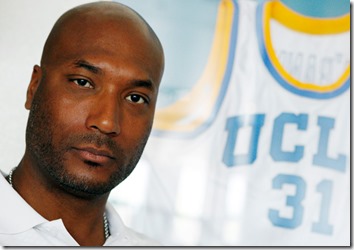
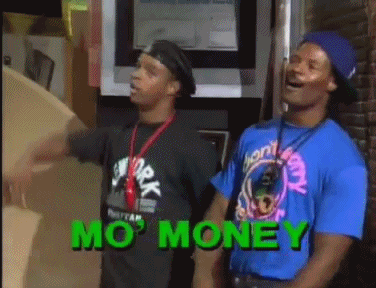

Comments